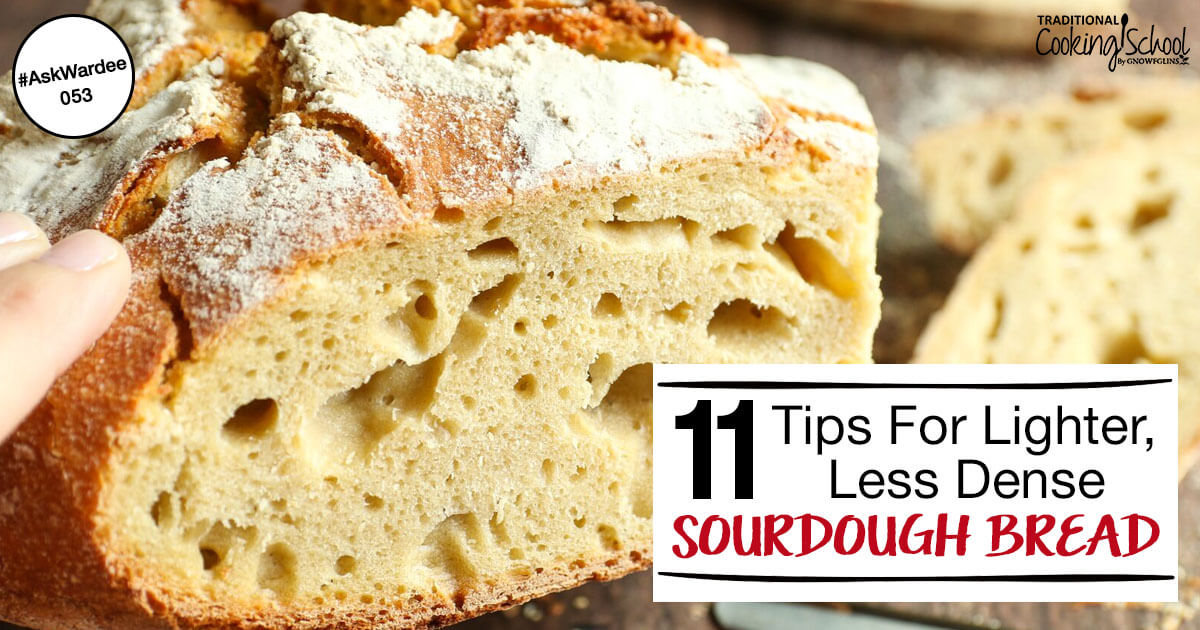
11 Tips For Lighter, Less Dense Sourdough Bread AskWardee 053
Tip #1: Increase the Hydration Level of your Dough for a Softer Textured Sourdough The amount of water you add to the dough affects how open the crumb is in the final result (open crumb means bigger holes and a softer texture). The higher the water level, the more open the crumb will be.

I will NEVER buy this again Sourdough MasterClass
1. Wrong type of flour 2. Inactive or weak sourdough starter 3. Under or Over-Proofing 4. Under-Kneading 5. Lack of Moisture 6. Improper Scoring 7. Incorrect Temperatures 7 Ways to Prevent Dense Sourdough 1. Use a different flour 2. Use an active and ripe sourdough starter 3. Proof of the correct amount of time 4.
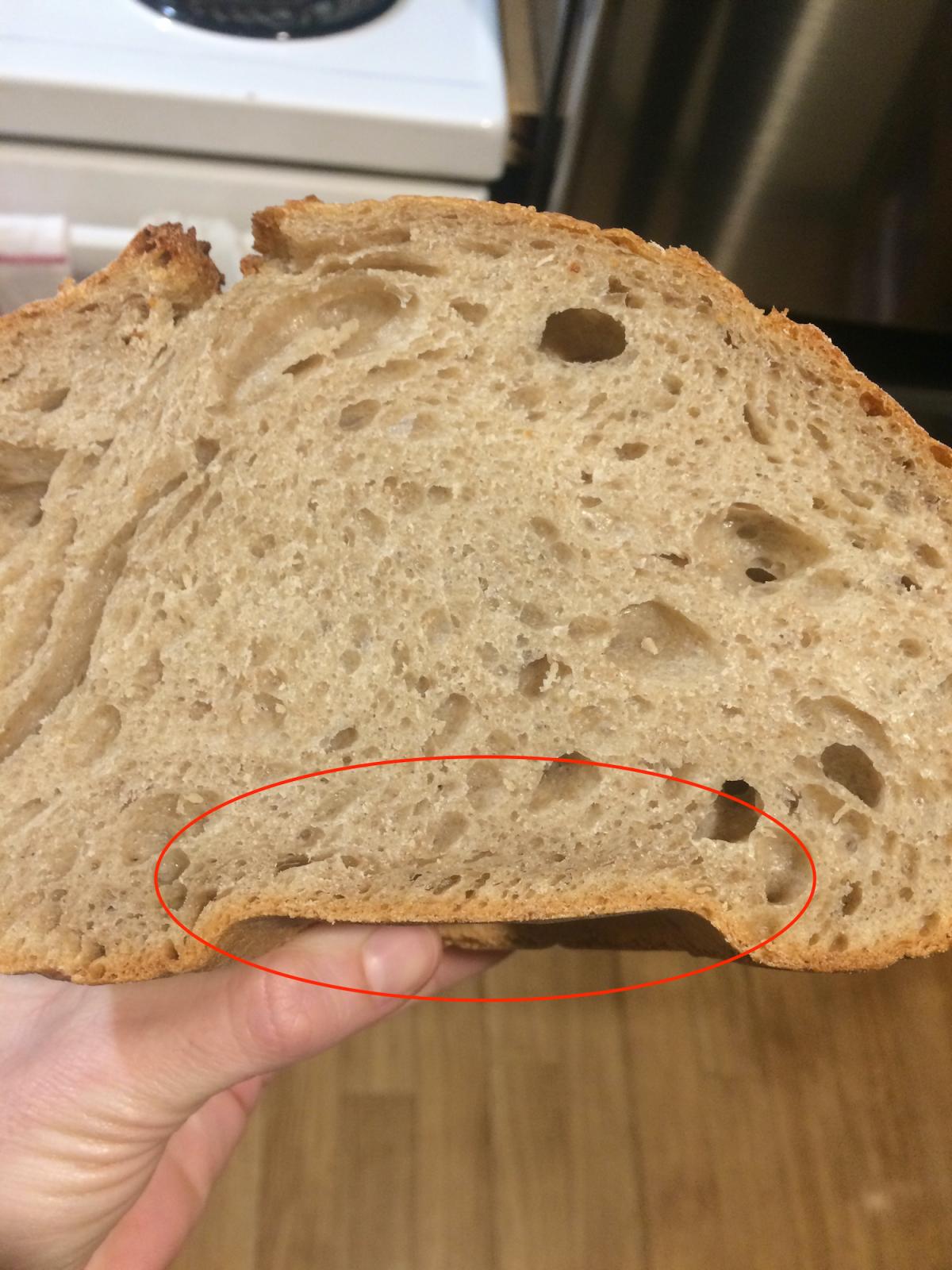
Sourdough always has dense patch on the bottom The Fresh Loaf
Extremely dense, gummy loaves or loaves with a few massive air pockets surrounded by a tight dense crumb are the result of under-proofed dough. This is extremely common problem among beginners. This is often the result of a weak or under-active sourdough starter ( be sure to read my sourdough starter troubleshooting guide for more details) or.

No More Dense Sourdough A Sourdough Guide Home Grown Happiness
When you mix the dough too much, the gluten in the flour becomes too tight, causing the bread to be dense. Sourdough bread is a type of bread made with a sourdough starter, which is a fermented mixture of flour and water. A higher hydration level will result in a lighter, airier bread, while a lower hydration level will result in a denser bread
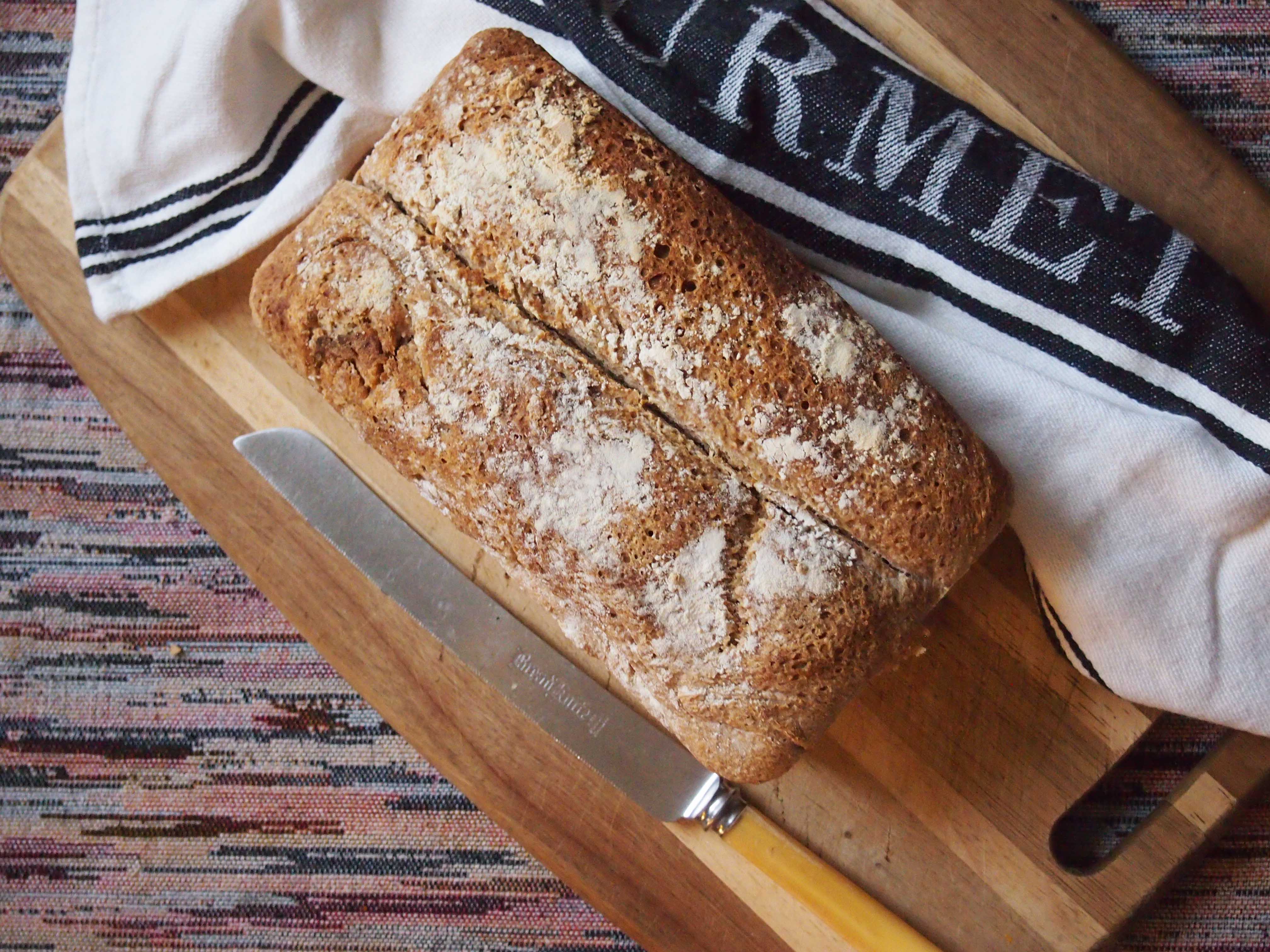
spelt sourdough VEGAN FOOD FOR PEACE
1. Don't Over or Under Ferment the Dough Both over fermenting and under fermenting the dough will give it less rising power. And with enough rising power, it can't make room for the air pockets that make the bread airy to form. Fermenting the dough is also referred to as letting the dough rise. If you ferment the dough for too little:
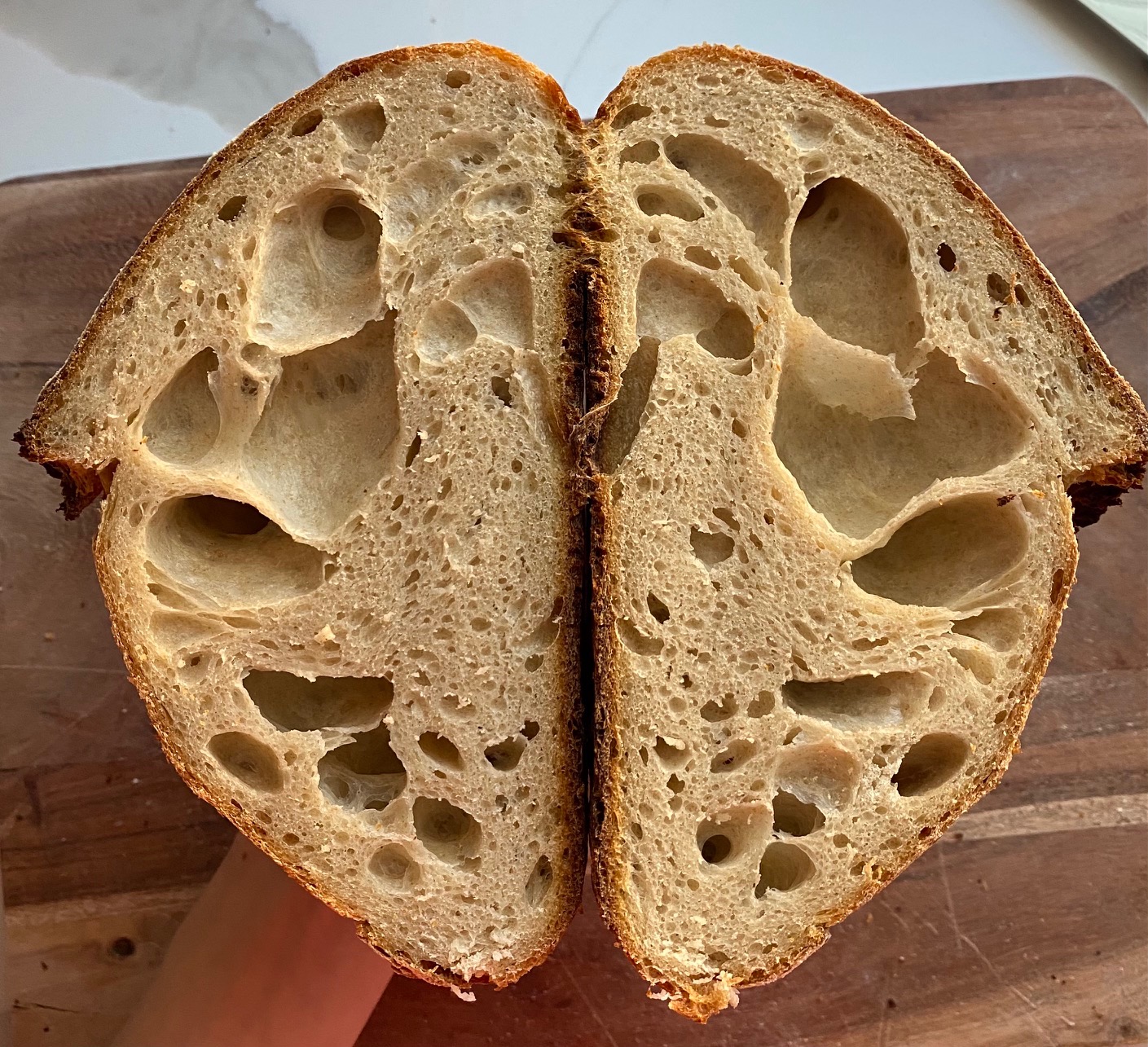
Dense, gummy sourdough The Fresh Loaf
PROBLEM - Gummy sourdough (dense, moist crumb) is the most common sourdough bread problems facing home bakers. The bread is heavy, hasn't puffed up in the oven and has a moist, dense texture inside. CAUSE - gummy sourdough can be caused by a starter that's too young or inactive and or under fermentation.

Hanover Foods Outlet Order Sourdough Thins Pretzels at a discount
But it's a pretty easy fix. Just move your dough to a warmer spot in your kitchen, like the turned-off oven, to warm it up. A thermometer would help here, too. The Best Bread in Every State. If.

Mostly Sourdough All things sourdough
People who don't have much experience with sourdough assume starter is more fragile than it actually is. Starters are easy to make unhappy, but they're very hard to kill. If your starter looks.
Sourdough crumb too dense The Fresh Loaf
If your dense sourdough bread is a bit stale, you can easily revive it by sprinkling it with water and toasting it in the oven. Just dampen the surface of the bread with a spray bottle or by brushing it with a bit of water, then place it in a 350°F oven for a few minutes to crisp up. The moisture will help soften the crust and improve the.

Why Is My Sourdough So Dense? (FAQ Answered!) Let's Foodie
January 2, 2024 Gareth Busby Improving bread, Sourdough Troubleshooting Are you tired of making sourdough bread that's too dense? I hear you! Mastering sourdough bread at home can be hard. In fact, even seasoned bakers still have the odd disaster now and again.
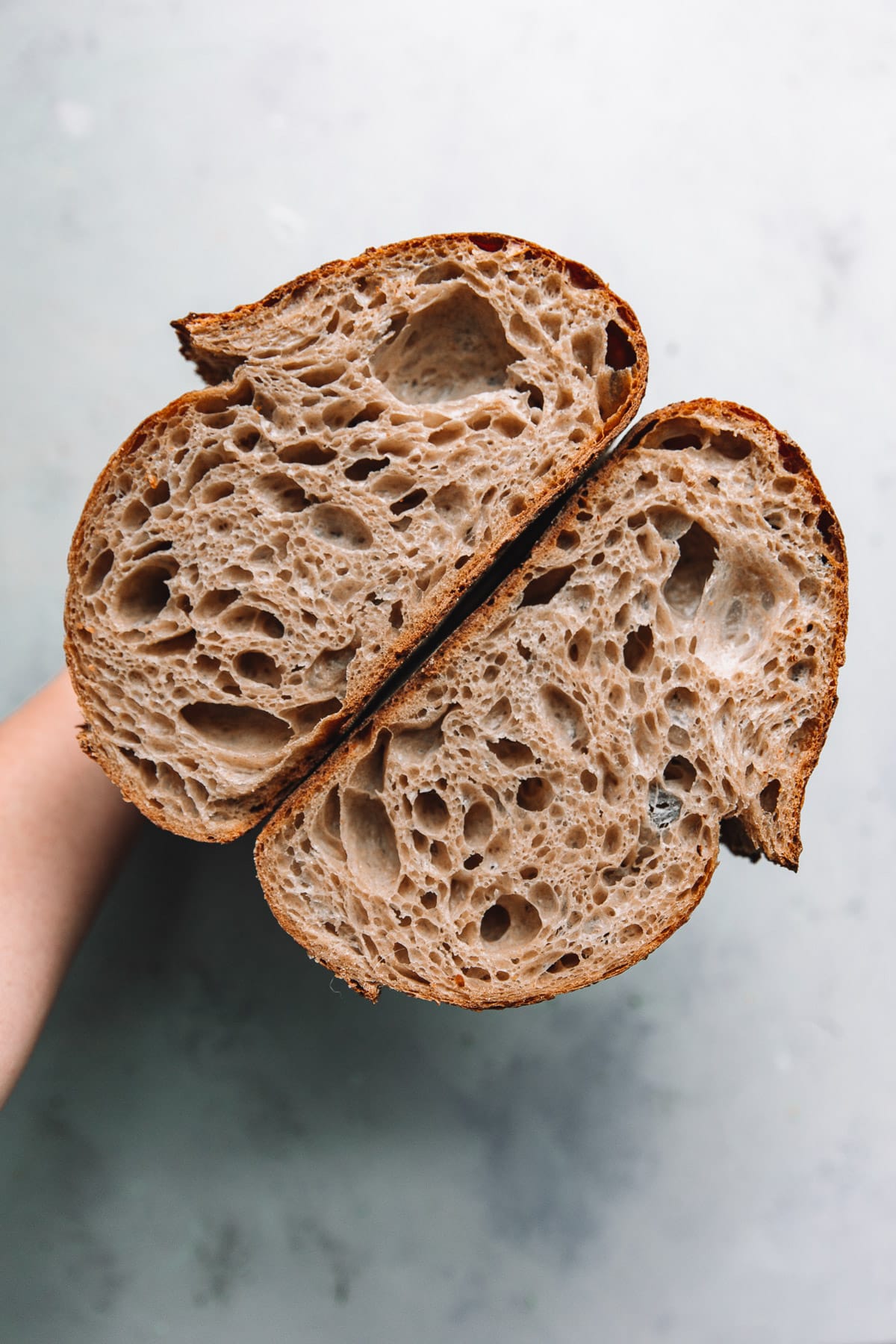
Sourdough Bread Troubleshooting Guide and FAQ A Beautiful Plate
1. The dough was over kneaded 2. The dough was over proofed 3. The dough was under proofed 4. The oven temperature was too low 5. The oven temperature was too high 6. The oven was not preheated 7. The dough was not shaped properly 8. The dough was not baked long enough 9. The dough was baked too long 10. The dough was not cooled properly Try again.

Why is my sourdough dense? Veg Patch Kitchen Cookery School
Or perhaps ' why is my sourdough dense?' If your dough isn't doing what it should, this sourdoug h bread troubleshooting guide is for you. Read through this and it will help you decipher what went wrong. Sourdough starter posts
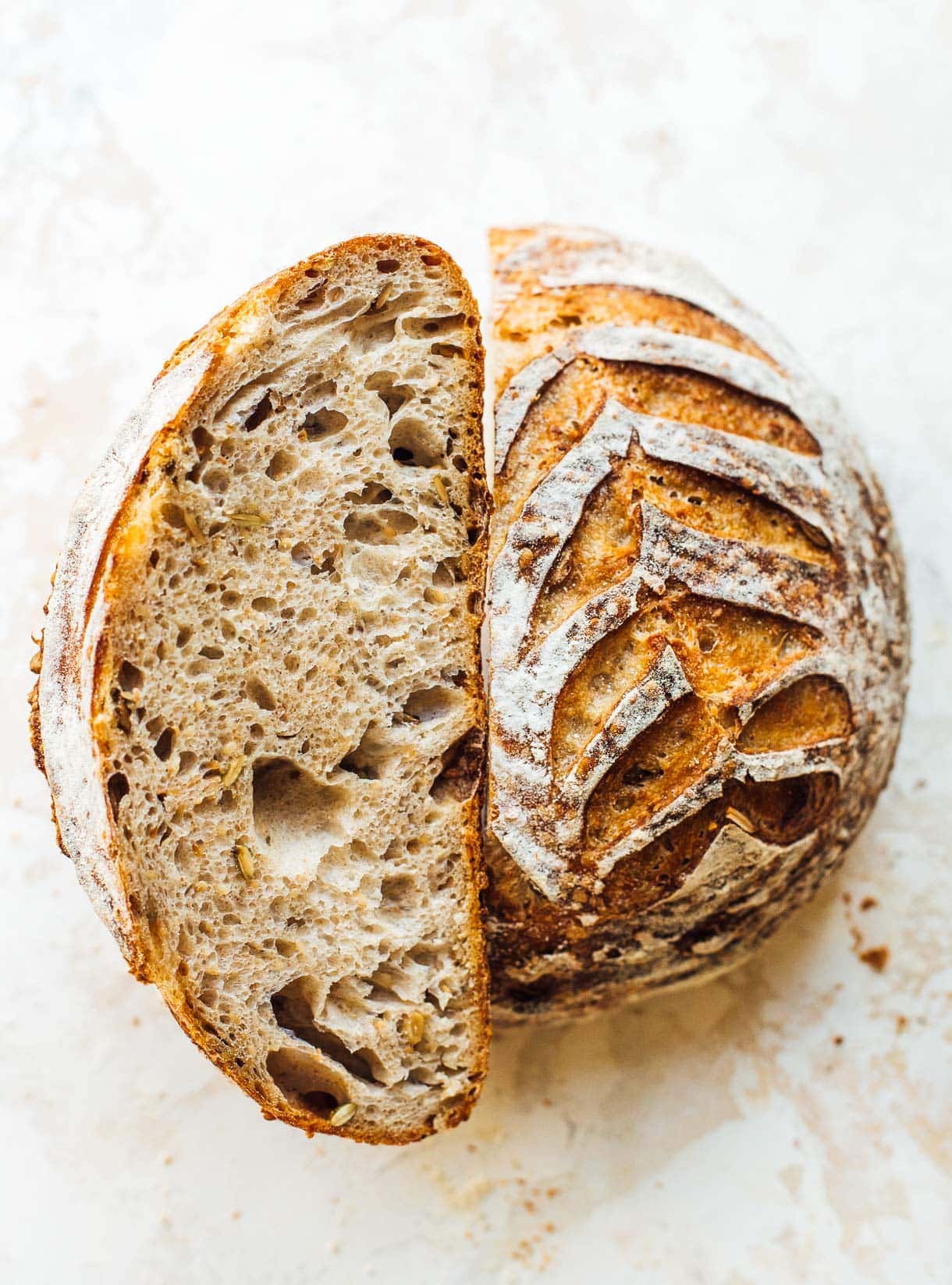
Easy Seeded Sourdough Bread Recipe • Heartbeet Kitchen
What Makes the Bread Dense? Why is my Sourdough Bread so Dense: How to Fix What to do with a Dense Bread? Stale Sourdough Bread Recipes A Dense Sourdough FAQs Dense Sourdough Bread Dense or heavy bread, can be the result of not kneading your dough long enough. Yeast releases gases when it engulfs the sugars in the flour.
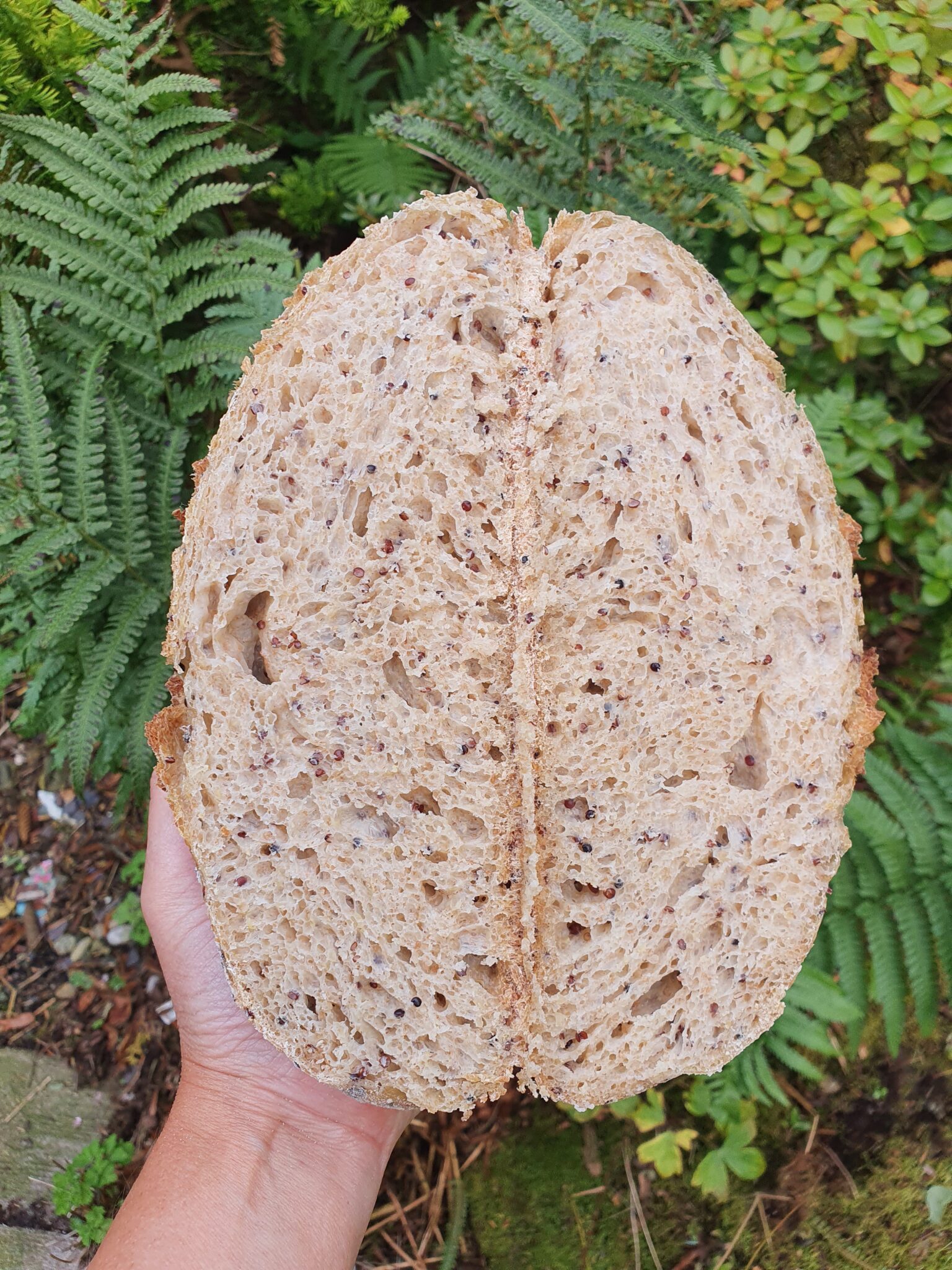
Blog Page 3 The home of great sourdough
Too dense sourdough bread is basically due to insufficient yeast activity in the dough. The first thing that comes to mind is under-proofing. In sourdough bread, if you do not give enough time for the wild yeast to multiply and reach a decent population where it can cause enough leavening, your bread is bound to be too dense.
12+ Sourdough Dense Images Sourdough Bread Starter
What Are The Common Causes Of Dense Sourdough Bread? 1. Under-kneading the dough: When the dough is not kneaded properly, the gluten strands do not form a strong network resulting in dense bread. 2. Excessive hydration: If the hydration level of the dough is too high, the gluten strands will not be able to support the structure and the bread.
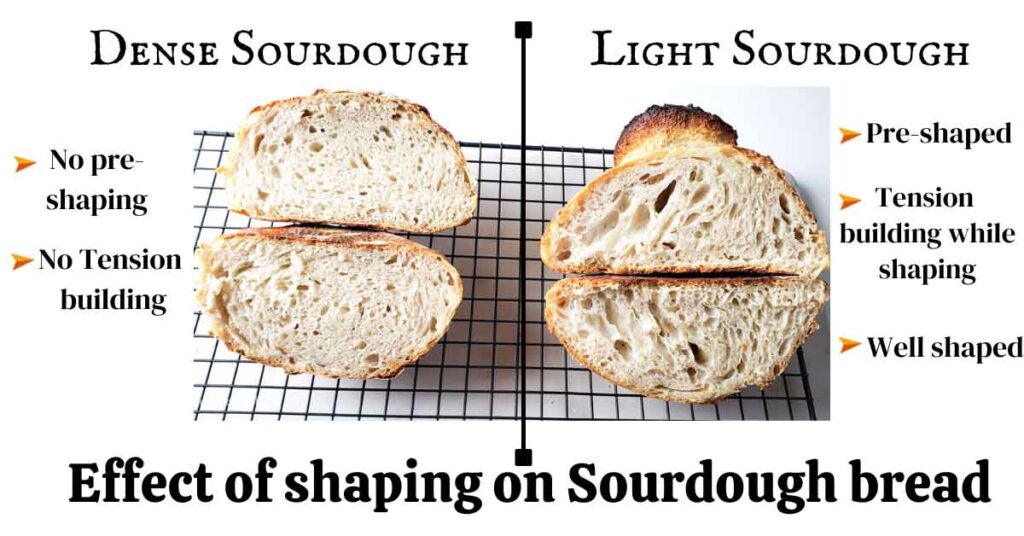
Is your sourdough bread too dense? Lets make it less dense The Flavor
1. Add more water. Sourdough bread can be made with less water, which makes it more dense. Try adding more water to your dough before baking. 2. Use a wetter dough. Sourdough bread can be made with wetter dough, which makes it less dense. Try using a wetter dough when baking your bread. 3. Use a proofing basket.